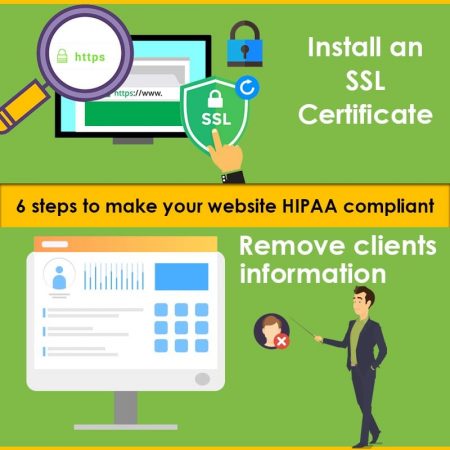 Having a website for a medical business is more complex than one can think, as it involves several responsibilities, not to mention that it needs to comply with specific sets of rules, including the Health Insurance Portability and Accountability Act (HIPAA).
Having a website for a medical business is more complex than one can think, as it involves several responsibilities, not to mention that it needs to comply with specific sets of rules, including the Health Insurance Portability and Accountability Act (HIPAA).
Specifically, we’re talking about an act dictating everything regarding how the website should look and function, not to mention that those who visit the website need clear and exact information. Also, it’s important to offer additional website security features, so visitors won’t be at risk of having their information exposed.
Therefore, the idea is simple: in order to remain HIPAA compliant, a website needs to follow specific requirements.
Install an SSL Certificate
Probably one of the most important steps you should take in the HIPAA compliance process is to have an SSL certificate for your website.
Technically speaking, this will show visitors that the website is fully secure and no data passing through it, like usernames, passwords, and any other sensitive information is encrypted and unreadable by and third parties. Simple as that. Oh, and it will turn the “http” in your address into “https”.
Remove clients information
There are situations where clients may require to have their information permanently removed from your website. And you need to be able to do this at any time.
Yes, you can keep and maintain the information after the visitor provides it, but in case of them leaving for another service provider, everything, including backed-up information, must be erased.
Encrypt everything
It doesn’t matter if we’re talking about information entered and submitted into your website or files, stored both locally and using a cloud service. Everything must be encrypted, no matter how many backups you’re using, in order to have a HIPAA compliant website.
Medical records need special attention, as once inputted and submitted to your site, you need to make sure they are protected since you are operating with very sensitive information.
Backup all the data
It is essential to back up all your clients’ information. Also, any kind of data collected by your website needs to be backed up as well, no matter if you’re relying on local backups or a safe and secure cloud solution.
Sign privacy agreements with employees
Most likely, the information stored on the website will be accessed by your employees, as part of their daily activities. However, to maintain the HIPAA compliant status, they must be authorized to do so.
It is your responsibility to inform employees about the need for signing a privacy agreement before giving them any levels of clearance or access to the information you store.
…as well as with business associates
There’s a high chance that you already have multiple business associates and work with third-party vendors. If they need to access the information stored on your website, they first need to sign a HIPAA Business Associate agreement.
This will keep your visitors’ information safe and, of course, maintain the website’s compliance with the HIPAA rules and regulations.
Of course, the list could go on, as there are multiple regulations a website should follow to remain. However, the ones presented above are clearly among the most important and the first you should consider following.
With over 20 years of experience, we, at IB Systems, approach any project with the determination to provide excellent results. Schedule a call today and our team will present you complete website development solutions, according to the HIPAA ruleset.
